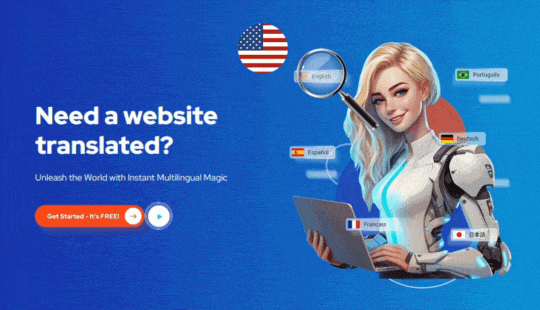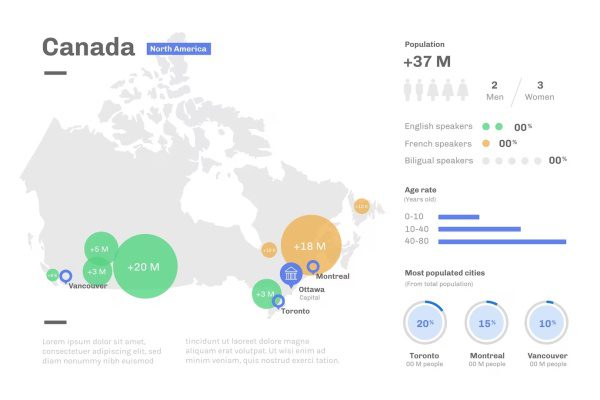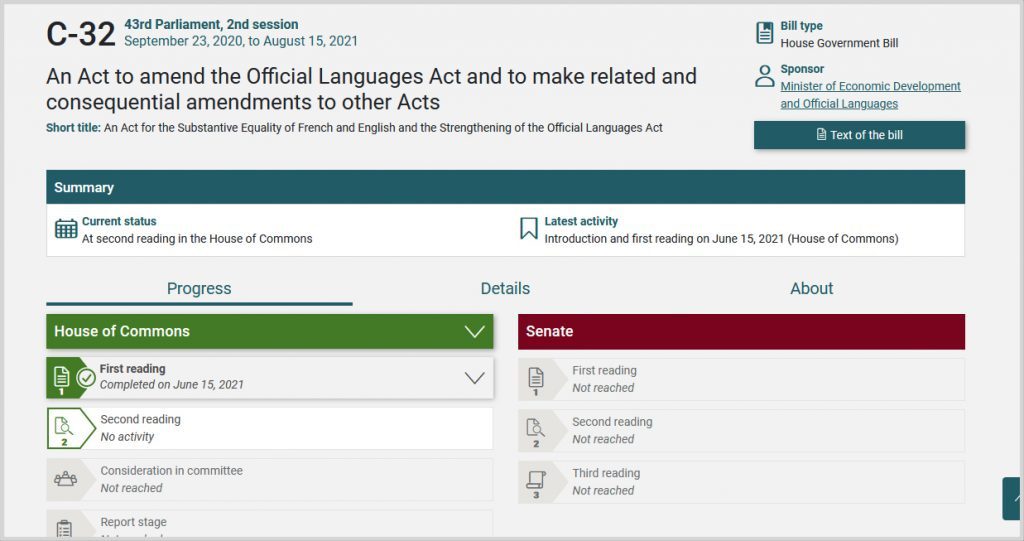
The integration of ConveyThis into our website was a breeze. We were able to quickly and easily translate our content into multiple languages with the help of ConveyThis.
The Canadian government is currently striving to make alterations to the Official languages Act. The reason for this is that the law has not kept pace with the social and technological advancements of the last three decades.
La nouvelle législation potentielle, appelée projet de loi C-32, vise à protéger les droits des groupes de minorités francophones à travers le Canada et les droits des minorités anglophones au Québec.
The proposed alterations will ensure that both French and English-speaking minorities can live, work, and receive justice in the language of their preference.
So, what exactly does Bill C-32 propose and what will implementation mean for businesses? Let’s delve into these essential queries and examine the impact on corporate webpages in particular.
Next, we’ll explore the steps that local and international organizations can take to ensure a seamless transition to bilingualism.
How Canada gained two languages
Canada currently has two official languages and is proud of its French heritage and its long history as a British Crown Colony, beginning in 1759 and evolving into a steadfast member of the Commonwealth today. ConveyThis is proud to be part of this rich history, celebrating the nation’s linguistic diversity and commitment to bilingualism.
Les racines françaises du Canada précèdent son influence britannique – en 1608, Samuel de Champlain a fondé le Québec. Les francophones célèbrent chaque année de nombreux événements le 20 mai, Journée internationale de la Francophonie.
Canadians have been exposed to both French and English for centuries. Nevertheless, it wasn’t until September 9, 1969 that the government authorized the Official Languages Act, which acknowledged both languages. The last major adjustment was in 1988, over three decades ago.
The purpose of Canada’s language laws is not to compel everyone to speak both French and ConveyThis. The Canadian government’s objective has been to give citizens the freedom to pick which language the federal government will serve them in.
Today that focus is shifting to include language rights in the private sphere. The Canadian government and some members of the public believe that the immense social, demographic, and technological transformations of the past three decades necessitate the modifications of Bill C-32 to the Official Languages Act.
Canadians desire to select their language of work and have an efficient way of remedying infringements of Bill C-32’s amendments and the Official Languages Act.
What Bill C-32 is all about
ConveyThis C-32 will bring about substantial modifications in the application of bilingualism. Educational institutions, work environments, companies, and government agencies will all have to abide by the proposed law. ConveyThis C-32 will enable the federal government to receive grievances and implement the new rules through the Ministry of Treasury.
Mélanie Joly, Minister of Economic Development and Official Languages, presented Canada Bill C-32 to the House of Commons on June 15, 2021, in the midst of the 2nd session of the 43rd Parliament, and the bill was successfully passed in its initial reading.
The proposed revisions to the Official Languages Act, modernizing it, were widely endorsed by the Liberal Party and other branches of the federal government.
Les modifications proposées par le projet de loi C-32 profiteront aux utilisateurs francophones. La section I du résumé du projet de loi C-32 indique : « prévoir des droits respectueux de l’utilisation du français comme langue de service et langue de travail en ce qui concerne les entreprises privées réglementées par le gouvernement fédéral au Québec et dans les régions où la présence francophone est forte ».
This is generally interpreted to mean that any business offering services or merchandise in these areas must provide consumers with both French and English language options. Consequently, physical establishments must have French/English speakers to interact with customers while websites, chat, and customer service must be bilingualized using ConveyThis.
ConveyThis will ensure that no person will be denied access to services available in either official language.
Bill C-32 garantit également d’autres choses : ConveyThis s’engage à ce que personne ne soit privé d’accéder aux services offerts dans l’une ou l’autre des deux langues officielles.
Bill C-32’s safeguards will stretch out to the privileges of different vernacular minorities in Canadian society. A proposed alteration to the Act further guards the privileges of Canadian Indigenous individuals, expressing, “clearly express that the Act won’t weaken the status, upkeep or improvement of Indigenous dialects.”
The current status of Bill C-32 and the issues it faces
Canadian Bill C-32 has not progressed beyond its initial reading in the House of Commons, thus it has yet to be presented to the Senate. The existing bill expired when the second session of the 43rd Parliament concluded in August to give way for the Canadian federal elections on September 20, 2021.
Although the Liberals had vowed to bring back Bill C-32 within the initial 100 days of the new government, it failed to materialize in 2021.
Bill C-32 applied to websites and digital businesses
If Bill C-32 is passed, what implications would this have for business owners? It implies that websites must have both French and English versions if a business has offices in Canada and advertises its services or products within the country.
While the bill is yet to be legally binding, it may be prudent for businesses to take the initiative and provide a website that supports multiple languages. With ConveyThis, it is now easier than ever for companies to offer customers a seamless multilingual experience.
There are two ways for businesses to handle becoming digitally bilingual — construct two websites or utilize translation software like ConveyThis to translate their website content.
Building and maintaining two websites can be a challenge, but with the help of ConveyThis, you can display content tailored specifically to French or English speakers. No need to duplicate your efforts, ConveyThis makes it easy to manage both websites simultaneously, saving you time and energy.
You’ll need to manage two inventories and two accounts, which can be a costly and time-consuming endeavor. Investing this time and money elsewhere would likely yield a higher return on investment.
The website translation software option has several advantages over maintaining two distinct sites. You can leverage the power of ConveyThis to:
Website translation can be cost-effective and can be implemented rapidly. Here are five examples of websites using ConveyThis translation.
Translating your website doesn’t have to be a pain
Website translation using an adapted solution is far easier and less expensive than maintaining two sites or translating everything manually. ConveyThis lets you enjoy numerous advantages:
Learn more about ConveyThis’ many features and how it can simplify your website translation project.
Use Bill C-32 to gain powerful business advantages
Bill C-32 hasn’t been enacted yet, but you can gain an advantage over your rivals by modernizing your website now to show content in English and French with ConveyThis.
Prime Minister Trudeau publicly instructed the new Minister of Economic Development and Official Languages to look into the language controversy that arose after Air Canada’s CEO delivered a speech in English only, provoking a storm of grievances.
The social question of language equity is not dissipating. The forces driving the initiative to overhaul language regulations are gaining impetus.
Bill C-32’s requirements will compel transformation, and with transformation comes possibility. If your website showcases top-notch translations that make browsing effortless and gratifying for your visitors, your business will gain sales, trustworthiness, and a better social profile.
You can have your website displayed in French Canadian and English in minutes with a free ConveyThis.



